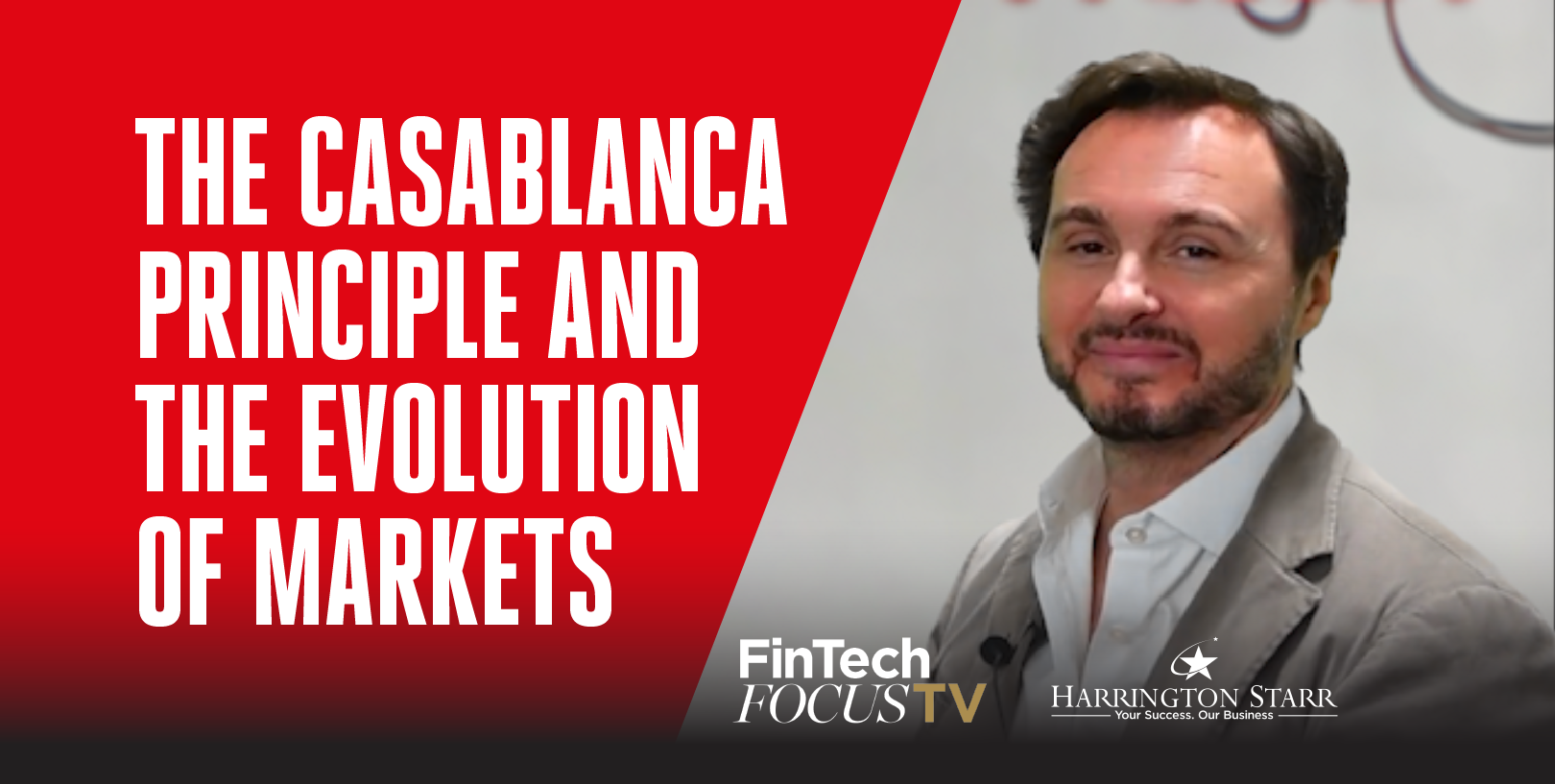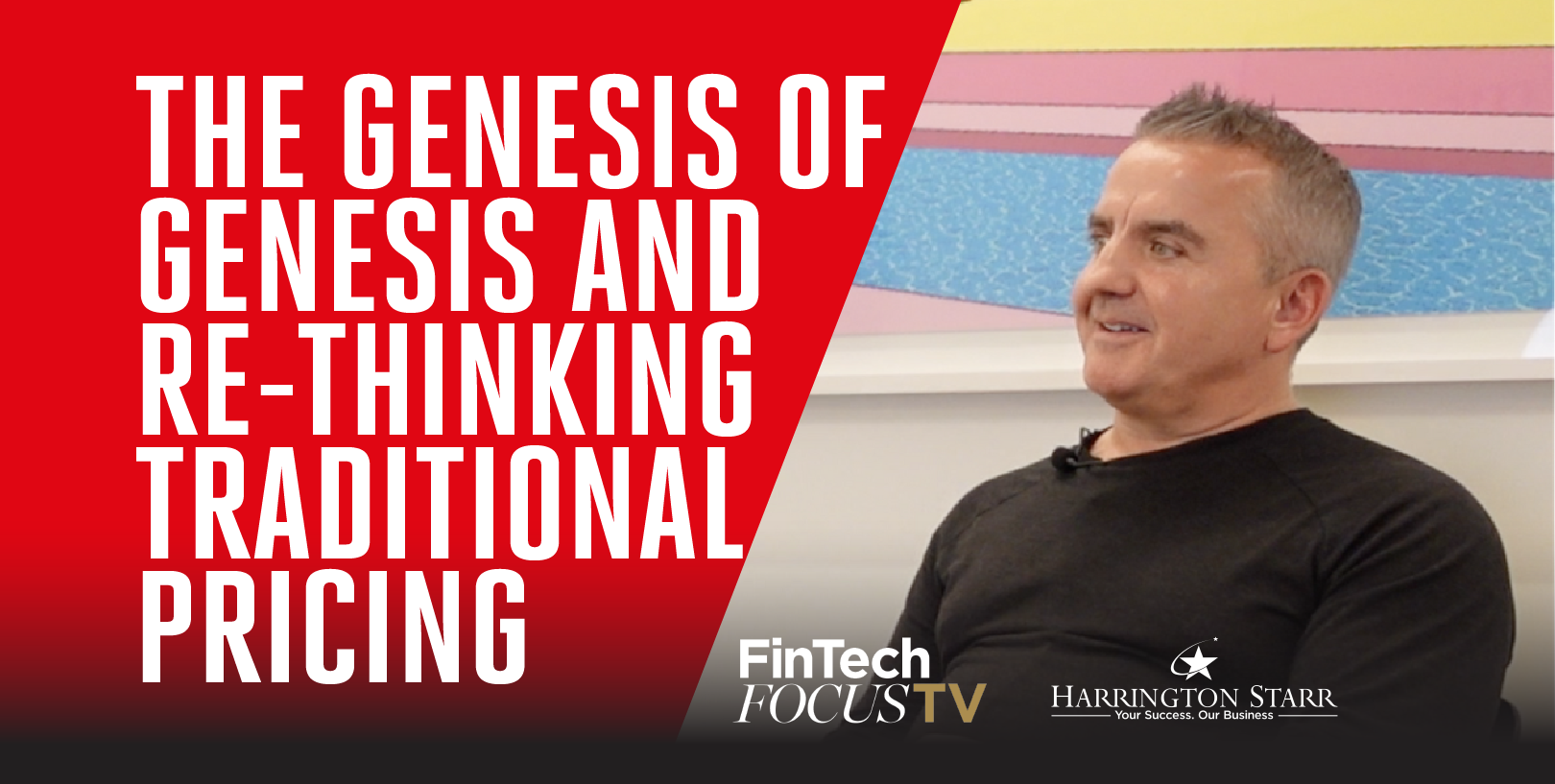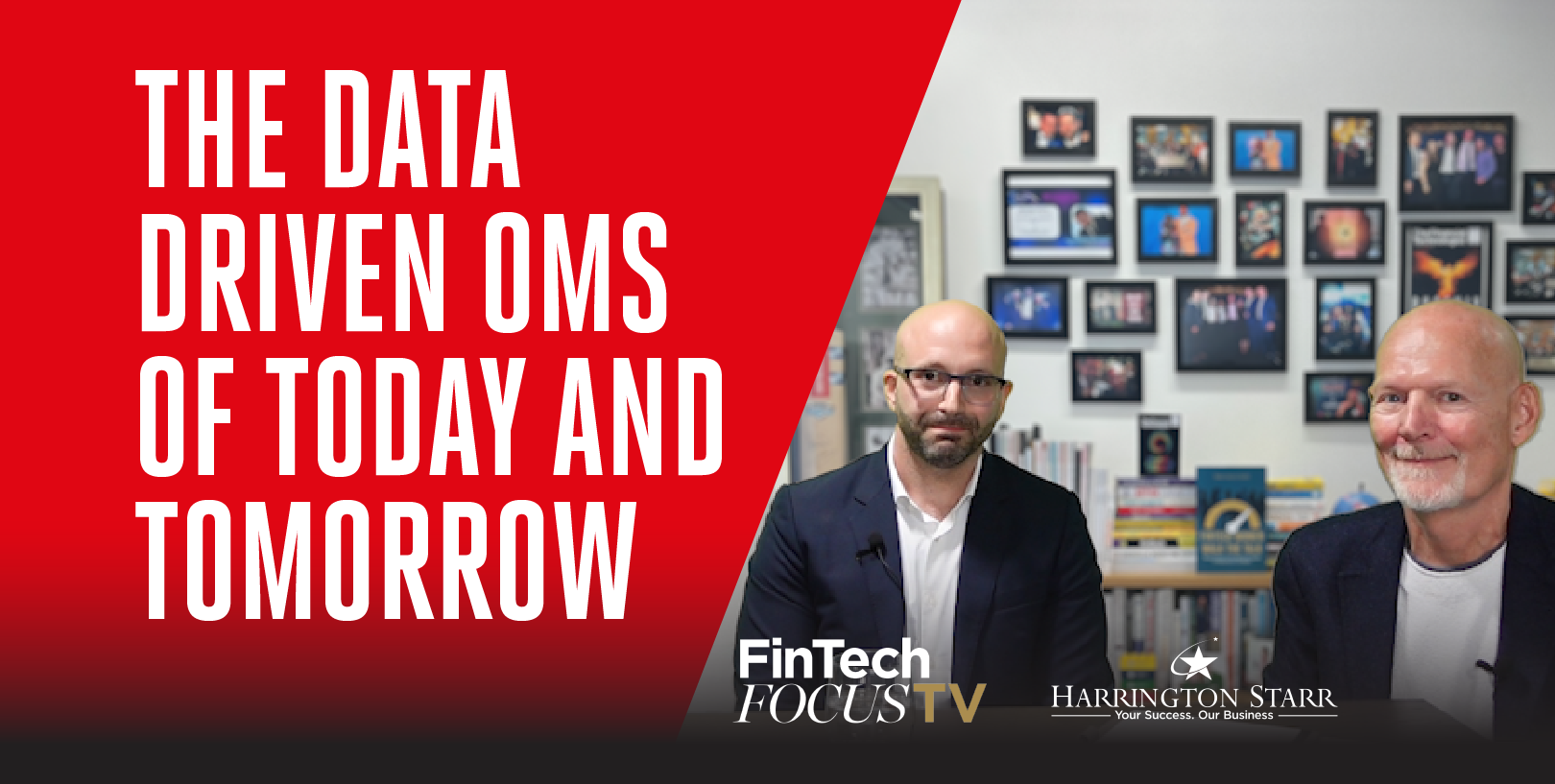
In this episode of FinTech Focus TV, our host Toby Babb engages in a captivating discussion with James Harrison, the Co-Founder and Chief Revenue Officer at Genesis Global, at Harrington Starr's New York City office. This episode delves deep into the evolution of Genesis Global, the innovative solutions they provide, and the experiences that have shaped James's career in the financial technology sector. James, who has extensive experience in investment banking and software engineering, provides valuable insights into how Genesis has positioned itself as a credible alternative to traditional financial technology vendors.
Founding Genesis Global
The journey of Genesis Global began in 2015, initiated by James and his co-founder and CEO, Stephen Murphy. Their vision was to create a platform that could effectively meet the demands of modern financial institutions. This ambition arose from their extensive backgrounds in the financial services sector, where they witnessed firsthand the limitations of existing vendors. James emphasizes the necessity for a different approach to building software in this competitive market. He and his co-founder, Stephen, recognized a gap in the market for a credible alternative to existing financial technology vendors.
James recounts his early career, which started in the late 1990s as a software engineer in investment banking. He shares anecdotes from his time at prominent firms such as Credit Suisse, where he gained a wealth of experience in both engineering and client relations. His experience in investment banking provided him with a deep understanding of the industry's needs and challenges. The initial idea for Genesis stemmed from the realization that the financial technology landscape was ripe for disruption.
James reflects on the environment in which they operated. During their tenure in the industry, there was a significant push for creativity and innovation, especially when financial institutions were thriving. This dynamic environment fostered the creativity that would later become a hallmark of Genesis Global.
Fostering Innovation in Financial Technology
The theme of innovation is central to the conversation, with James emphasizing how Genesis seeks to disrupt traditional financial services. He notes that their approach is rooted in a desire to be different from the large vendors dominating the market. “There had to be a different way to build software,” he asserts, highlighting the need for fresh perspectives in a staid industry.
James points out that the financial services industry had become stagnant, largely due to legacy systems and established practices that did not allow for innovation. This observation led to their commitment to creating a platform that would prioritize flexibility and adaptability.
This creative environment informed Genesis's mission to develop software that is both practical and forward-thinking. The platform was designed from the outset to address the specific requirements of financial markets. James underscores the critical importance of performance and security in financial applications, noting that these factors are non-negotiable for any credible vendor in the sector.
Building a Successful FinTech Team
One of the critical factors behind Genesis's success is the collaborative culture they have fostered within the organization. James explains how they have retained their early employees, many of whom joined as junior team members and have since become experts in their field. “Those people are still with us, which is pretty amazing over the years,” he reflects, showcasing the loyalty and commitment of his team.
The conversation touches on the significance of employee engagement in the FinTech sector. James notes that fostering a sense of ownership among team members is essential for driving innovation. By empowering employees to take initiative and contribute ideas, Genesis has cultivated a work environment that encourages creativity and collaboration.
James explains how team members are not confined to behind-the-scenes roles; instead, they engage directly with clients. This interaction is crucial for understanding client needs and tailoring solutions accordingly. The emphasis on client-facing roles allows the team to gather valuable feedback and insights that inform product development.
At Harrington Starr, we understand that building a successful FinTech team requires more than just technical expertise; it requires people who embody resilience, collaboration, and innovation. We specialize in connecting high-caliber talent with leading FinTech firms across the US, the UK, and beyond. Our expertise spans a range of specialisms—including sales, technology, product, operations, cyber, risk and compliance—allowing us to headhunt FinTech professionals precisely matched to each sector’s unique demands.
By staying attuned to the evolving needs of the FinTech industry, we deliver talent solutions that drive growth and foster lasting success. Whether expanding your team in the UK, establishing a new hub in America, or filling key roles across diverse functions, Harrington Starr is here to build teams that propel businesses forward. Our reach spans various sectors, including capital markets, asset management, banking and payments, ensuring we find specialists with the exact skills to meet each industry’s distinct challenges.
Navigating Challenges in the Financial Sector
The challenges faced by startups in the financial technology space are numerous, and James openly discusses the hurdles that Genesis encountered in its formative years. A significant concern was the issue of vendor risk, which is often a barrier for new entrants trying to secure partnerships with larger financial institutions.
James describes how Genesis was initially viewed with skepticism by potential clients. Many were hesitant to embrace a new vendor due to concerns over reliability and performance. To address these challenges, Genesis adopted a strategy focused on targeting smaller broker-dealer firms, which were more willing to experiment with innovative solutions.
This strategic pivot allowed Genesis to build its reputation incrementally. By establishing relationships with these smaller firms, James and his team were able to prove the efficacy of their platform and demonstrate its value proposition. The successful onboarding of their first major client, Redburn Partners, played a pivotal role in validating Genesis's approach and providing a reference point for future clients.
Leveraging Technology for Growth
As the conversation progresses, James discusses the technological advancements that have enabled Genesis to scale effectively. He highlights the advantages of cloud technology and open-source solutions in facilitating their growth. By leveraging these tools, Genesis was able to reduce infrastructure costs and allocate resources more effectively.
James emphasizes that adopting a cloud-based approach has allowed Genesis to remain agile in a rapidly changing market. This flexibility is essential in the fintech industry, where client demands, and technological capabilities are constantly evolving. By utilizing cloud technology, Genesis can quickly adapt to new trends and deliver solutions that meet the needs of their clients.
Toby and James delve deeper into the role of open-source technology in their development process. James explains how utilizing open-source components not only enhances their platform but also encourages collaboration within the developer community. This approach aligns with Genesis’s mission to drive innovation through feedback and shared expertise.
Driving Client-Centric Innovation
One of the standout features of Genesis’s strategy is its commitment to client-centric innovation. James articulates how the company actively seeks feedback from clients to inform its development process. By allowing developers to use the platform for free and providing a mechanism for feedback, Genesis creates a collaborative environment that fosters continuous improvement.
James underscores the importance of understanding client needs and expectations. By engaging directly with users, Genesis can adapt its offerings to align with market demands. This client-focused approach is essential for building long-term relationships and ensuring that the platform remains relevant in an ever-changing industry.
The Role of Consumption-Based Pricing
A significant aspect of Genesis's business model is its consumption-based pricing structure. James explains that this model aligns the company’s financial success with the value that clients derive from the platform. “The more value our clients derive from our platform, the more they pay,” he clarifies, emphasizing the mutual benefit of this approach.
This pricing model encourages clients to engage with the platform continuously. By tying costs to usage, Genesis fosters a sense of accountability and partnership with its clients. James elaborates on how this model encourages long-term relationships, as clients are motivated to explore the full potential of the platform.
Future Aspirations and AI Integration
As the conversation shifts towards the future, James shares his excitement about the integration of artificial intelligence into Genesis’s offerings. He notes that the company is exploring innovative ways to leverage AI to enhance their platform further. “We’re only just scratching the surface on AI,” he states, indicating that there is significant potential for growth in this area.
Toby and James discuss the transformative impact that AI could have on the financial services industry. James envisions a future where AI is not only a tool for efficiency but also a driver of innovation in product development. He expresses eagerness about the possibilities that AI presents for improving client experiences and streamlining processes.
James highlights that the implementation of AI will require a thoughtful approach, ensuring that it complements the existing platform while enhancing its capabilities. This forward-thinking perspective is indicative of Genesis's commitment to remaining at the forefront of technological advancements in the fintech space.
Community Engagement and Social Responsibility in FinTech
In addition to technological advancements, James emphasizes the importance of community engagement and social responsibility. He shares his personal connection to Grimsby Town Football Club, where he has recently made an investment as a way to give back to his hometown.
James’s involvement with the club goes beyond financial support; it represents a commitment to fostering growth and opportunity in the local area. By investing in the community, he aims to create positive change and contribute to the well-being of those around him. This ethos aligns with the values that underpin Genesis as a company.
The discussion touches on the broader impact that businesses can have on their communities. James believes that organizations have a responsibility to give back and support initiatives that promote social welfare. “It was compelling for me to give a little bit back,” he shares, linking his personal experiences to the broader mission of Genesis.
Conclusion
This episode of FinTech Focus TV offers a comprehensive exploration of James Harrison’s journey and the innovative solutions that Genesis Global provides. Through their commitment to fostering collaboration, embracing feedback, and driving innovation, Genesis is redefining the landscape of financial technology.
James’s insights into the importance of adaptability, relationship-building, and community engagement serve as valuable lessons for anyone navigating the fintech space. As Genesis continues to grow and evolve, the future looks promising for both the company and the clients it serves.
At Harrington Starr, we ensure that we connect our clients across the UK and US, with the highest calibre of candidates. We deliver talent solutions that drive growth and foster lasting success, with talent solutions spanning a range of specialisms—including sales, engineering, product, data, cyber, risk and compliance—allowing us to headhunt FinTech professionals precisely matched to each sector’s unique demands.





